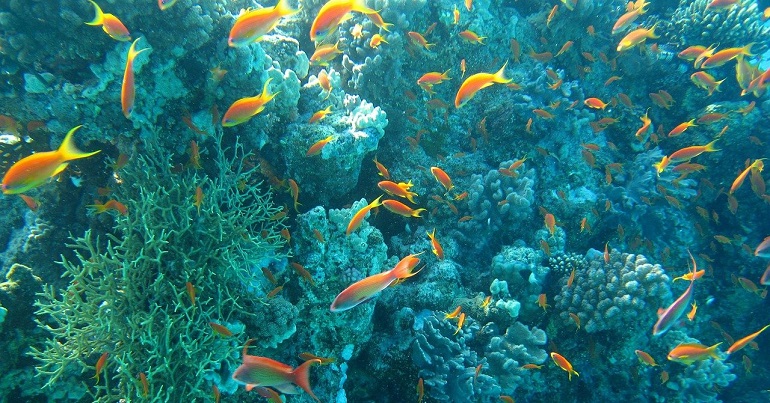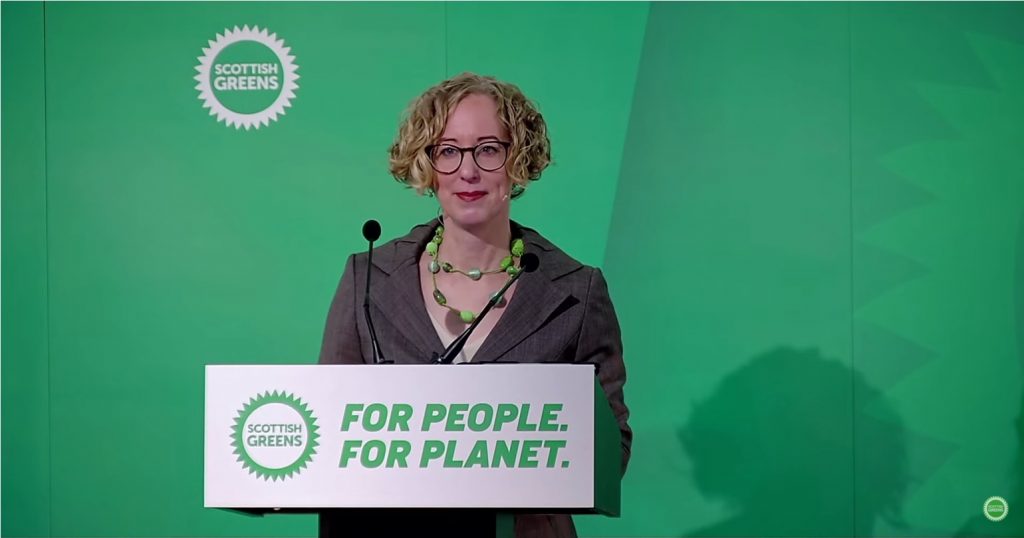A new approach to ocean policy is crucial for a just transition

Oceans and the climate emergency conjure images of melting glaciers and stranded polar bears, and rightly so: the summer Arctic has shrunk by 40% in the last 40 years, with terrifying repercussions for people and planet. But the world’s oceans cover 70% of the planet and, when looked after, are one of the largest, most effective carbon sinks, absorbing 25% of all CO2 emissions. They store 50% more carbon than the atmosphere and take up more carbon than all the rainforests combined. Closer to home, coastal waters in Britain store an estimated 205 million tonnes of carbon, 50 million tonnes more than Britain’s forests.
Despite this, landmark conservation and climate-change agreements have virtually ignored the critical role oceans play in the fight against climate change. Ahead of the Paris Climate Agreement, scientists had to lobby world leaders just to make sure oceans were even in the conversation. And now, in the lead up to COP26, we are faced with a similar picture.
If we are serious about tackling the climate emergency, we need to redress this and turn our attention towards oceans – both the dangers they face but also the huge natural solutions they offer to help us meet our net-zero targets and ensure a just transition.
The UK has world-renowned coastal and marine habitats. But we have lost 90% of seagrass meadows to pollution, dredging, bottom trawling and coastal development. If we continue business as usual the UK’s sea shelf sediments could release 13 million tonnes of stored carbon over the next decade. We should be protecting and restoring seagrass, saltmarsh, oyster reefs and kelp forests with the same level of urgency needed to reforest our woodlands. Currently, government policy is lacking in both regards.
We need to learn from the Plymouth experience where they have just established the UK’s first National Marine Park, so we can further protect our oceans.
Much like the vital calls for rewilding our countryside and restoring our peat bogs, we must extend this to our seas and implement a rewilding programme for our marine ecosystems. Globally, saltmarsh and seagrass beds alone can store up to 450 million tonnes of CO2 a year – almost half the emissions of the entire global transport industry. Experts believe rewilding key marine ecosystems around the world could lock up 1.83 billion tonnes of carbon each year – 5% of the savings needed globally.
Last month, campaigners at The Marine Conservation Society and Rewilding Britain called on the government to kick start this programme of ocean rewilding. But so far the calls have been ignored. We urgently need an ocean rewilding strategy which, unlike the government’s recent Peatlands and Trees strategies, is ambitious and detailed enough to meet the scale of the crisis we face.
The Labour Party has already committed to a National Nature Service, a plan to create 400,000 new jobs, helping us to confront the challenges of the climate crisis and the spike of unemployment caused by the pandemic. Rewilding our marine ecosystems would help provide these secure green jobs of the future, ensuring our oceans are restored and their protection is properly resourced. These jobs are already being created through small-scale marine initiatives in communities across the country. We must build on this to deliver more, good quality jobs, rebuilding stronger economies in coastal communities across the UK.
Protecting, restoring and rewilding our oceans isn’t just a necessity for meeting our climate targets. It is vital for ensuring a fair and just transition for the 60 million people around the world who rely on sea-based industries for work, as well as the 3 billion who depend on fish as a major source of protein. Failing to protect and restore our oceans is already leaving those who most rely on them – often poorer, marginalized communities in the Global South – vulnerable to the worst effects of the climate crisis, whether that’s coastal erosion and flash flooding or loss of fish and other traditional food sources. Any strategy to protect our oceans must work to reverse this and ensure that those same communities are the ones who benefit from its restoration.
In March this year, more than 3,000 scientists, political representatives and public figures signed an open letter to governments ahead of COP26, calling for “the protection and restoration of ocean and coastal ecosystems to be included in climate policy.” Labour will be rallying around this call, to ensure that ocean recovery and renewal is at the heart of our plan to tackle the climate and ecological crisis. Only by incorporating oceans into the picture – the life-threatening threats they face and the life-saving solutions they offer – do we stand a hope of reaching net-zero and ensuring a fair, just transition.
Olivia Blake is the Labour MP for Sheffield Hallam and Shadow Minister for Nature, Water and Flooding
PS. We hope you enjoyed this article. Bright Green has got big plans for the future to publish many more articles like this. You can help make that happen. Please donate to Bright Green now.




The problem with this argument is that it implicitly rejects the scientific consensus on climate change.
Very simply, either this is insignificant, in which case the SCOCC says we shouldn’t be wasting effort and resources on it, or it’s a large enough effect to be significant, and yet has not been factored into the predictions of warming that constitute the SCOCC. Either way, you’re saying the scientific consensus is wrong.
Please stop masquerading as a Green.
Greens, please stop being so unbelievably gullible: just because someone who rejects the scientific consensus on climate change claims to be on your side _doesn’t make it true_.
“Olivia Blake is the Labour MP for Sheffield Hallam”
You’ve been daft enough to provide a platform for someone who is explicitly your enemy.